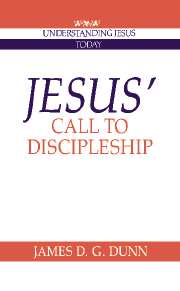2 - The Call of the Kingdom
Published online by Cambridge University Press: 01 February 2010
Summary
Now after John was arrested, Jesus came into Galilee, preaching the Gospel of God, and saying, “The time is fulfilled, and the Kingdom of God is at hand: Repent, and believe in the Gospel.
(Mark 1:14–15)Introduction
What was it that caught people's attention with regard to Jesus? According to our Gospels crowds gathered to listen to him. Why did they come? What was it that attracted people to Jesus? According to our Gospels many followed him. Why should they do that?
An important part of the answer must lie in Jesus' message of the Kingdom. Talk of the Kingdom was evidently one of the most striking and consistent features of his preaching. In the quotation at the head of the chapter Mark sums up Jesus' message in terms of “the Kingdom of God” (to avoid speaking of God so directly Matthew prefers the phrase “Kingdom of Heaven,” but the meaning is the same). When Jesus later sent out his disciples in mission he focused their message in the same words – “The Kingdom of Heaven is at hand” (Matt. 10:7; Luke 10:9). It is generally recognized that parables were Jesus' most distinctive method of teaching; and his most frequent category of parables regularly begins with the words, “The Kingdom (of Heaven) is like …” (Matt. 13:24, 31, 33, 44, 45, 47; etc.). In Mark, which does not contain so much of Jesus' teaching, the phrase occurs thirteen times. Matthew has another thirty-six references, and Luke another eighteen. So Jesus' emphasis on the Kingdom was obviously one of the most memorable aspects of his ministry.
- Type
- Chapter
- Information
- Jesus' Call to Discipleship , pp. 6 - 31Publisher: Cambridge University PressPrint publication year: 1992



